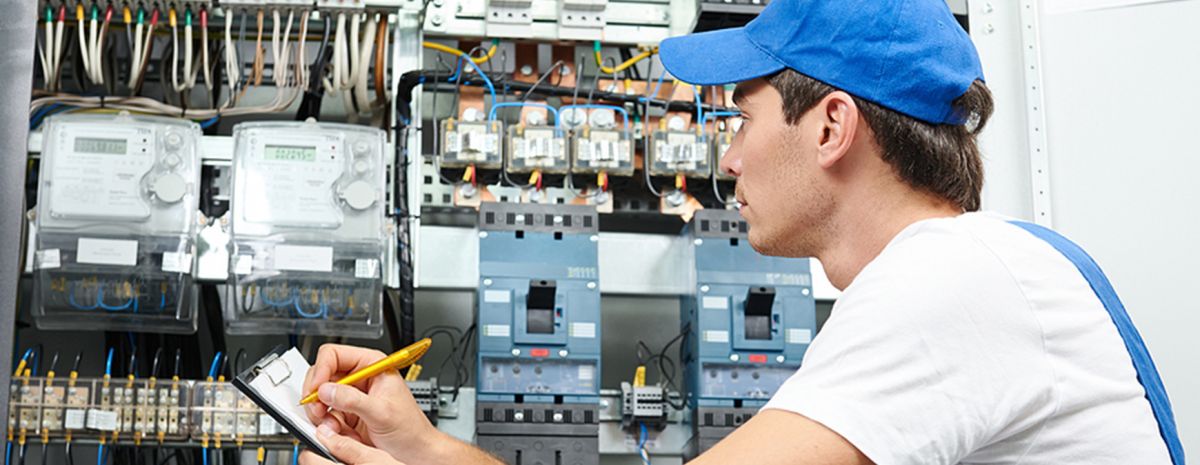TWS is a Great Training Option for Everyone
Learn more about how we can prepare you to advance your career.
Are you interested in the innovation of electrical applications? With advancements in electrical applications, we can help reduce the cost of electrical technology, improve reliability, and increase power densities. Plus, we can create better infrastructure, collect massive data sets, and improve the climate.
Want to learn more about the fundamentals of electricity? Did you know you can train to become an electrical technician in as little as seven months? This Electrical Applications program focuses on the fundamentals of mechanical and electrical principles and residential and commercial wiring. Plus, a class on solar fundamentals allows you to learn more about emerging electrical applications.
What are Some Emerging Electrical Applications?
There are many emerging electrical applications. Some of the emerging electrical applications that can achieve advancements in many of society’s conundrums include:
Internet of Things (IoT)
Have You Considered a Career in the Skilled Trades?
Fill out the form to recieve a no obligation info packet.
The Internet of Things is a network of physical, connected devices that can communicate using sensors, software, and other technologies. This includes seven billion connected IoT devices like phones, refrigerators, vehicles, electronic components, and smart home devices. With the help of IoT, we can collect, analyze, and use data to control and automate processes.
The Internet of Things helps us access low-cost, low-power sensor technology, allowing manufacturers affordable and reliable sources for IoT devices. It is easier than ever to network IoT devices using Internet protocols to connect sensors in the cloud easily. Cloud computing platforms make it much easier for businesses and consumers to access the infrastructure to manage IoT devices.
Battery Technology
Scientists are on the cusp of advanced battery technology, experimenting with silicon and lithium anodes, solid-state electrolytes, and advanced battery designs. Some of the advanced battery technology includes lithium-sulfur, sodium-ion, redox flow batteries, Zn-ion, Zn-Br, and ZN-air batteries. These new batteries can be used to enhance portable electronic devices, electric vehicles, medical devices, and industrial equipment.
Electric vehicles are taking advantage of lithium batteries. These batteries power our cars, long-haul trucks, and domestic airplanes. Lithium-air batteries use a solid electrolyte instead of the liquid electrolyte used in lithium-ion batteries. They offer a longer driving time with four times the energy density.

New: Industrial Maintenance
Learn About Our New Advanced Industrial Maintenance Program in Houston
Tulsa Welding School is proud to announce our newest program offering available at our Houston Campus – Advanced Industrial Maintenance Technology! Learn the skills you need to take on the industries of manufacturing, distribution, energy production and facility maintenance in as few as 7 months.
Smart Grid Technology
Power generation has been transformed into smart grids for better and more efficient power generation. A smart grid uses digital technology to monitor and manage the flow of electricity. They not only deliver power to customers, but customers can also send overage electricity to the grid during peak usage.
Electric Vehicles
Electric vehicle production is accelerating with the help of charging infrastructure and government funding. In addition to Telsa, many car companies are transforming their vehicle fleets into EVs. Ford, General Motors, Honda, Toyota, and Stellantis have pledged to meet or exceed government guidelines to produce half of all vehicles sold as EVs by 2030. EVs come in different configurations.
All-Electric Vehicle – operates entirely on battery power, with no engine parts.
Plug-in Hybrid – offers both gasoline and battery-powered fueling or can be operated in all-electric mode.
Hybrid EV – runs entirely off gas but uses an electric motor to lower fuel transmission.
Wireless Power Transfer
Another emerging electrical application is wireless power transfer. Wireless power transfer transmits electrical energy from a power source to a receiver using an interconnecting wire. This type of power transfer system uses time-varying electromagnetic fields for energy transmission.
Wireless power transfer can be used in smart homes to power devices like lighting and security systems. In automotive, it can help charge contactless electric vehicles more efficiently and conveniently. Wireless power transfer can also power and charge wearables like smartwatches and medical devices. Electrical applications are expanding their footprint outside the traditional domain of electricians.
Want to Learn More?
The Electrical Applications program at TWS trains students in hands-on courses guided by expert instructors for one purpose: to prepare them for job opportunities as entry-level electricians. This in-depth program teaches students mechanical and electrical principles, residential and commercial wiring fundamentals, and more. This program is offered at our Jacksonville, FL, Tulsa, OK, and Houston, TX campuses. Contact us at (855) 981-7313 to learn more about our Electrical Applications program.







